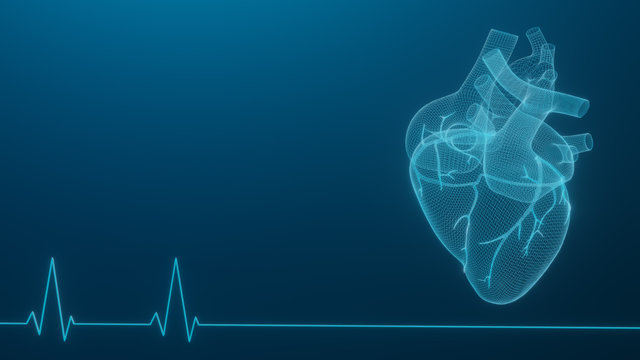What Cardiology reveals about managing high blood pressure
What Cardiology reveals about managing high blood pressure
Blog Article
Recognizing the Value of Cardiology in Modern Medical Care Services
Cardiology plays an important duty in contemporary healthcare, specifically as heart disease remains to be the leading reason for mortality worldwide. Developments in diagnostics and treatment have transformed individual treatment, allowing earlier treatments and enhanced outcomes. Additionally, the shift towards precautionary cardiology empowers individuals to handle their wellness proactively. As modern technology remains to evolve, the assimilation of innovative options might further redefine cardiology's influence on public health, prompting a better assessment of emerging fads and their implications.
The Frequency of Cardiovascular Disease and Its Influence On Public Wellness
Heart condition stays the leading reason of death worldwide, its influence extends far beyond individual clients to influence public wellness systems and economic situations. The high frequency of heart problem puts a considerable strain on medical care sources, necessitating raised funding for rehabilitation, therapy, and prevention programs. Public wellness campaigns should deal with threat factors such as excessive weight, smoking, and inactive way of livings, which add greatly to the increasing incidence of heart conditions.Moreover, the economic burden connected with cardiovascular disease is immense, encompassing not just straight medical costs but additionally indirect expenses connected to shed efficiency and early death. Neighborhoods deal with challenges in taking care of these expenses, usually causing differences in medical care access and end results. As the population ages and lifestyle-related dangers proceed to escalate, the seriousness for effective cardiology treatments becomes vital. Subsequently, attending to cardiovascular disease is not only an issue of private health and wellness but likewise an essential public health and wellness top priority.
Advancements in Heart Diagnostics and Imaging Techniques
Current innovations in cardiac diagnostics and imaging strategies have actually reinvented the area of cardiology, boosting the capacity to check and identify heart conditions. Strategies such as heart MRI, CT angiography, and echocardiography have actually become significantly advanced, providing thorough pictures of heart frameworks and functions. These techniques enable the very early recognition of conditions like coronary artery disease, cardiac arrest, and valvular disorders.Moreover, improvements in non-invasive diagnostics, such as wearable technology and remote monitoring gadgets, have encouraged clients and doctor. These devices facilitate real-time monitoring of heart rhythms and other important signs, resulting in prompt interventions. In addition, expert system is being incorporated right into imaging analysis, enhancing accuracy and performance in diagnosis.
Technologies in Treatment Alternatives for Heart Conditions
Current innovations in cardiology have actually led to considerable technologies in therapy alternatives for heart problems. These include advanced medical techniques that improve step-by-step outcomes and arising medications that use brand-new avenues for treatment. As the area develops, these innovations play an essential role in enhancing person care and results.
Advanced Surgical Techniques
Technologies in medical techniques have actually changed the landscape of cardiology, supplying new hope for clients with heart problems. Minimally intrusive procedures, such as catheter-based interventions, have considerably lowered recovery times and healthcare facility keeps. Techniques like robotic-assisted surgery improve precision, enabling doctors to browse complex anatomical structures with greater accuracy. Developments in imaging innovation help with real-time visualization during procedures, improving outcomes. Transcatheter aortic valve substitute (TAVR) exhibits an innovation in dealing with aortic constriction, allowing valve replacement without open-heart surgery. Additionally, hybrid approaches that combine catheter-based and medical approaches supply tailored services for various heart concerns. These innovative surgical techniques not just boost individual security yet also increase therapy choices, underscoring the critical duty of technology in contemporary cardiology practices.
Arising Treatments and medicines
As the landscape of cardiology remains to evolve, arising treatments and medications play a crucial function in enhancing therapy choices for heart disease. Technologies such as novel anticoagulants and progressed lipid-lowering agents have actually transformed the management of cardio diseases, substantially decreasing patient morbidity and death. Additionally, the growth of gene treatments and regenerative medication uses promising opportunities for dealing with conditions formerly deemed incurable. Medical tests are continually exposing the efficacy of these therapies, pressing the boundaries of standard treatments. The assimilation of electronic wellness innovations promotes customized medication, permitting for customized treatment plans based on genetic and way of living factors. Collectively, these improvements emphasize the vibrant nature of cardiology, improving client results and redefining requirements of treatment in modern-day healthcare.
The Role of Preventive Cardiology in Client Care
Precautionary cardiology plays a crucial role in patient care by concentrating on the identification of danger elements that add to cardiovascular disease. With way of living alteration approaches and very early discovery methods, doctor can properly reduce the occurrence of cardio occasions - Cardiologist near me. This aggressive strategy not just boosts individual results however also promotes lasting wellness
Threat Aspect Recognition
While cardiovascular diseases stay a leading reason for morbidity and mortality worldwide, effective threat variable identification serves as a cornerstone of preventative cardiology. Determining danger factors such as high blood pressure, diabetes, family, and hyperlipidemia history is important for very early intervention. Healthcare experts utilize numerous screening approaches to examine these factors, enabling tailored preventative steps. Additionally, comprehending a patient's way of living choices, such as smoking cigarettes and physical inactivity, better informs threat assessments. This detailed assessment makes it possible for clinicians to create personalized treatment strategies focused on mitigating dangers. By focusing on risk aspect recognition, health care systems can boost patient results and lower the overall concern of cardio diseases, eventually adding to improved public health and wellness approaches and source he has a good point allocation.
Lifestyle Adjustment Approaches
A wide variety of researches highlights the crucial function of way of living alteration techniques in decreasing heart disease danger. These methods incorporate nutritional changes, increased physical activity, smoking cessation, and weight monitoring. By taking on a heart-healthy diet rich in fruits, vegetables, whole grains, and lean healthy proteins, individuals can reduce cholesterol levels and blood pressure. Routine exercise enhances the heart and enhances general cardiovascular health and wellness. Furthermore, stopping cigarette smoking considerably lowers the threat of heart condition and boosts recuperation prices for those with status quo. Weight management even more contributes to cardiovascular wellness by minimizing various other danger aspects such as diabetic issues and hypertension. Implementing these lifestyle transforms not just promotes individual health yet likewise acts as a keystone of preventive cardiology in patient treatment.
Early Detection Strategies
Way of living adjustments significantly add to lowering cardio illness risks, yet they are most efficient when coupled with very early discovery techniques. Preventative cardiology highlights the importance of recognizing prospective heart issues prior to they intensify right into severe conditions. Strategies such as blood pressure surveillance, cholesterol screening, and progressed imaging innovations like echocardiograms play essential duties in examining cardio health and wellness. Biomarkers and genetic testing also improve the accuracy of early discovery, enabling customized preventive methods. Regular heart risk examinations encourage health care providers to step in proactively, possibly avoiding cardiac arrest and strokes (Cardiology care). By incorporating these early detection approaches into routine treatment, people can profit from timely lifestyle treatments and targeted treatments, ultimately boosting and improving results top quality of life
Integrating Technology Into Cardiology Practices
As developments in modern technology proceed to reshape different fields, the assimilation of cutting-edge tools and systems into cardiology practices has ended up being essential for enhancing client care and results. Telemedicine systems allow cardiologists to check patients remotely, improving access to care while decreasing the concern on health care centers. Wearable gadgets, such as smartwatches, allow continual heart price surveillance, signaling both medical professionals and people to possible concerns in real-time. In addition, fabricated knowledge (AI) is being made use of to assess huge quantities of cardiac data, assisting in early medical diagnosis and personalized treatment strategies. Advanced imaging strategies, consisting of 3D echocardiography, improve visualization of heart structures, bring about much more precise treatments. Digital health and wellness records (EHRs) improve patient details monitoring, making sure that cardiologists have instant access to critical information. Together, these technological innovations are changing cardiology, promoting aggressive administration and improved wellness results for clients with cardiovascular problems.
The Importance of Individual Education and Involvement
Patient education and learning and engagement play an essential role in the administration of cardiovascular health and wellness. By outfitting clients with expertise about their problems, therapy options, and way of living adjustments, doctor equip people to take an energetic role in their treatment. This aggressive approach can cause boosted adherence to prescribed medicines, nutritional adjustments, and exercise programs, inevitably reducing the risk of complications.Engagement likewise promotes a solid patient-provider relationship, encouraging open communication and depend on. When people feel informed and involved, they are click here now a lot more most likely to voice problems and ask questions, which can lead to much better scientific outcomes. In addition, educational resources, such as workshops or digital platforms, can improve understanding and promote self-management approaches. Overall, prioritizing patient education and engagement is vital for improving cardio health and wellness, enhancing lifestyle, and minimizing medical care expenses related to cardio illness.
Future Patterns in Cardiology and Their Prospective Impact

Often Asked Concerns
What Lifestyle Changes Can Lower Heart Problem Danger?
The current question addresses way of living modifications that can significantly reduce cardiovascular disease threat. Cardiology. Embracing a balanced diet regimen, participating in regular physical task, preserving a healthy weight, taking care of tension, and avoiding cigarette can notably boost cardiovascular health
Just How Can I Acknowledge Very Early Indications of Heart Troubles?
Acknowledging early indications of heart problems includes monitoring signs such as chest discomfort, shortness of breath, tiredness, and irregular heartbeat. Prompt understanding of these signs can trigger essential medical examination and intervention for much better outcomes.
What Are the Differences In Between Cardiologists and Cardiac Surgeons?
The distinctions in between cardiologists and cardiac specialists depend on their functions; cardiologists primarily manage and identify heart problems through non-invasive techniques, while heart cosmetic surgeons do procedures to remedy architectural heart issues. Each plays a crucial, distinctive role.

Just how Usually Should I Obtain My Heart Health And Wellness Checked?
The frequency of heart checkup varies based upon private risk factors. Usually, grownups ought to undertake analyses every one to two years, while those with status quo might need more constant evaluations as recommended by healthcare specialists.
What Duty Does Genetics Play in Heart Problem Danger?
Genetics considerably influences heart problem danger, with familial patterns suggesting inherited problems. Specific genetics can predispose people to hypertension, cholesterol problems, and other cardio problems, highlighting the value of genetic testing in evaluating heart health and wellness. Heart disease stays the leading cause of death around the world, its impact expands far beyond specific patients to influence public health systems and economic climates. Public health efforts have to deal with danger factors such as weight problems, smoking cigarettes, and sedentary way of lives, which add significantly to the increasing occurrence of heart conditions.Moreover, the economic concern connected with heart condition is immense, including not just straight medical costs however additionally indirect expenditures related to lost efficiency and early death. Preventive cardiology plays a vital function in person treatment by focusing on the identification of risk aspects that add to heart condition. Fabricated intelligence (AI) and machine knowing are improving diagnostics and individual surveillance, making it possible for very early discovery of heart conditions. The differences in between cardiologists and heart surgeons lie in their roles; cardiologists primarily manage and diagnose heart conditions through non-invasive methods, while cardiac surgeons perform medical treatments to deal with architectural heart concerns.
Report this page